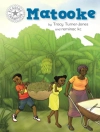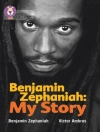Everything you need to promote mathematical thinking and learning!
Good math teachers have a robust repertoire of strategies to move students’ learning forward. This new volume from award-winning author Page Keeley and mathematics expert Cheryl Rose Tobey helps you improve student outcomes with 50 all-new formative assessment classroom techniques (FACTS) that are embedded throughout a cycle of instruction. Descriptions of how the FACTs promote learning and inform teaching, including illustrative examples, support the inextricable link between instruction and learning.
Useful across disciplines, Keeley and Tobey’s purposeful assessment techniques help K-12 math teachers:
- Promote conceptual understanding
- Link techniques to core ideas and practices
- Modify instruction for diverse learners
- Seamlessly embed formative assessment throughout the stages of instruction
- Focus on learning targets and feedback
Instead of a one-size fits all approach, you can build a bridge between your students’ initial ideas and correct mathematical thinking with this one-of-a-kind resource!
قائمة المحتويات
Preface
Acknowledgments
About the Authors
Chapter 1: An Introduction to 50 More Formative Assessment Classroom Techniques (FACTs)
Classroom Snapshot of Formative Assessment in Practice
Why 50 More FACTs?
Elicitation FACTs
Supporting Productive Mathematics Discourse
Next Steps
Chapter 2: Formative Assessment and Standards
FACTs and Key Ideas in Mathematics
FACTs and Mathematics Practices
Chapter 3: Get the FACTs! Formative Assessment Classroom Techniques
1. Comment Coding
2. Concept Mix-Up Probes
3. Confidence Level Assessment (CLA)
4. Conjecture Cards
5. Cover-Up
6. Enhanced Multiple Choice
7. Error Analysis
8. Extended Sticky Bars
9. Eye Contact Partners
10. Feedback Check-Ins
11. Feedback Focused Group Discourse
12. Feedback Sandwich
13. Find Someone Who
14. Fingers Under Chin
15. Flip the Question
16. Four Corners Jigsaw
17. Gallery Walk
18. Group Frayer Model
19. Group Talk Feedback
20. Homework Card Sort
21. I Think–I Rethink
22. Interactive Whole-Class Card Sorting
23. Learning Intentions
24. Learning Intentions Reflection
25. Let’s Keep Thinking
26. Lines of Agreement
27. Most and Least Sure About
28. Now Ask Me a Question
29. Partner Strategy Rounds
30. Plus–Delta
31. PMI (Plus–Minus–Interesting)
32. Questioning Cue Cards
33. Ranking Tasks
34. RAQ (Revise, Add, Question) Feedback
35. Reflect Aloud
36. Reflect Then Self-Assess
37. “Rules That Expire” Probes
38. Seeing Structure
39. Slide Sort
40. Sort Envelopes
41. Structures for Taking Action
42. Success Indicators
43. Success Indicator Problem Generating
44. Take Stock
45. Talk Moves
46. Thermometer Feedback
47. Traffic Light Sliders
48. VDR (Vote, Discuss, Revote)
49. What Stuck With You Today?
50. X Marks the Spot
Appendix: Annotated Resources for Mathematics Formative Assessment
References
Index
عن المؤلف
Cheryl Rose Tobey is a senior mathematics associate at Education Development Center (EDC) in Massachusetts. She is the project director for Formative Assessment in the Mathematics Classroom: Engaging Teachers and Students (FACETS) and a mathematics specialist for Differentiated Professional Development: Building Mathematics Knowledge for Teaching Struggling Students (DPD); both projects are funded by the National Science Foundation (NSF). She also serves as a director of development for an Institute for Educational Science (IES) project, Eliciting Mathematics Misconceptions (EM2). Her work is primarily in the areas of formative assessment and professional development. Prior to joining EDC, Tobey was the senior program director for mathematics at the Maine Mathematics and Science Alliance (MMSA), where she served as the co–principal investigator of the mathematics section of the NSF-funded Curriculum Topic Study, and principal investigator and project director of two Title IIa state Mathematics and Science Partnership projects. Prior to working on these projects, Tobey was the co–principal investigator and project director for MMSA’s NSF-funded Local Systemic Change Initiative, Broadening Educational Access to Mathematics in Maine (BEAMM), and she was a fellow in Cohort 4 of the National Academy for Science and Mathematics Education Leadership. She is the coauthor of six published Corwin books, including seven books in the Uncovering Student Thinking series (2007, 2009, 2011, 2013, 2014), two Mathematics Curriculum Topic Study resources (2006, 2012), and Mathematics Formative Assessment: 75 Practical Strategies for Linking Assessment, Instruction and Learning (2011). Before joining MMSA in 2001 to begin working with teachers, Tobey was a high school and middle school mathematics educator for ten years. She received her BS in secondary mathematics education from the University of Maine at Farmington and her MEd from City University in Seattle. She currently lives in Maine with her husband and blended family of five children.












